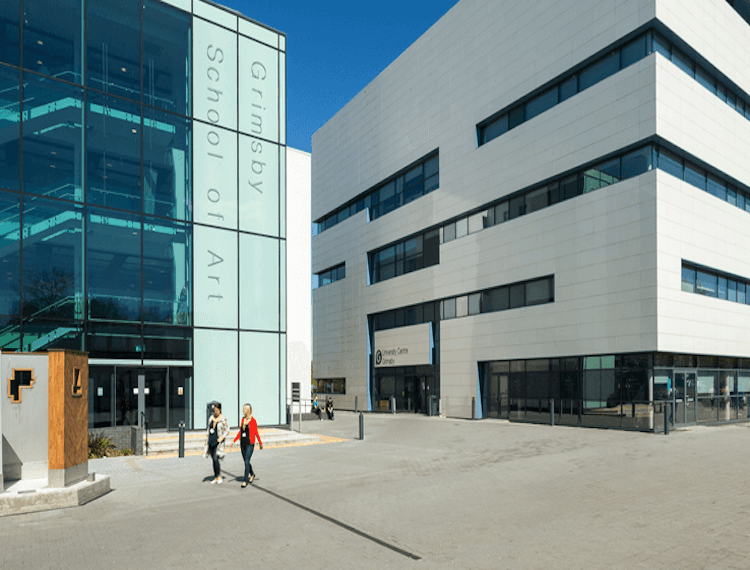Further education is still out of reach for too many in the UK. While we know how many applicants for higher or further education are rejected, there’s a great swathe of society who never made it that far in the first place. Bound by location, time and money, it can be tough to make everything fit your needs.
We are based in Grimsby, where the problem is even more acute than many other UK towns and cities. We’ve got an unusual ‘geographic footprint’, being one of the largest colleges in an area that’s quite rural – the product of a few scattered towns and villages.
All this means that the chance of being able to carve the time out of an existing job or to justify deferring an offer of work in order to gain new skills is reduced even further. When you’re reliant on bringing everyone into a building for traditional education at set times, you’re adding more barriers for those thinking of further education, more obstacles for those already on courses who are struggling to balance commitments.
And compounding all this, the march to an automated future is set to hit Grimsby harder than most places.
Grimsby – a microcosm of our changing nation
Two of the biggest industries in Grimsby are fishing and food manufacture. The thousands of local jobs that rely on these sectors could soon be disrupted, as cheaper and more reliable technology combines with other political and socioeconomic issues to put livelihoods at threat.
Based on what we see at the GrimsbyInstitute, many employers deserve credit for looking to upskill their staff to offset the looming issue. But of course, businesses aren’t charities – they’re only going to support their workers in pursuing courses that benefit the company and there are occasions when that can only take budding students so far.
Without that support in work, we return to the problem of time and money. It can be a bleak landscape and what’s happening here can be seen in countless other towns across the UK, each presenting their own varying challenges and barriers to self-improvement and more stable future prospects.
Putting the classroom in your pocket
All of which is precisely why we’ve invested a lot of time in thinking about how we can harness advances in tech to even out the playing field for those looking to gain skills.
We’d been using our previous Virtual Learning Environment since 2005, but we needed to take a next step to change our model from online to mobile learning. While it might seem like semantics, we’re at a stage now where the vast majority of people have a smartphone with them most of the time. By changing the delivery mode, mobile learning means flexible access, progress at your own pace and the ability to fit a course around your 9-5 job.
To fit with this shift, we’re changing course design in a number of ways. Similar to the ideology increasingly seen in the private sector, it pays to be nimble, offering a blend – part mobile delivery, part traditional learning, available on demand.
No seams, no limits
Shifting to a new Virtual Learning Environment has helped make this possible. We spent over a year looking and since opting for Canvas, we’ve been able to put the classroom in our students’ pockets to create a unified, intuitive experience, which just wasn’t possible before, integrating elements like Office 365 and Google Drive.
Offering seamless access has also led to lower dropout rates. By reducing the time taken to sign into different services and making it easier to share work and feedback between devices, you remove barriers that can have a cumulative, negative impact. This is especially pertinent when you’re working with students who have other commitments that take up their time.

The decreasing dropout rate is more than just a box for Grimsby Institute to tick. It represents a step towards the true democratisation of education. It means that whether you’re returning to education, working to become more socially mobile, or doing a practical job and want an academic qualification to diversify your CV, you have the flexibility to add modules that will benefit you and fit that tailored course around your life.
The practical impact further down the line? A more skilled workforce that’s prepared to deal with the future head on and succeed.
Graham Raddings is Innovation Learning Manager at Grimsby Institute of Further and Higher Education

 The decreasing dropout rate is more than just a box for Grimsby Institute to tick. It represents a step towards the true democratisation of education. It means that whether you’re returning to education, working to become more socially mobile, or doing a practical job and want an academic qualification to diversify your CV, you have the flexibility to add modules that will benefit you and fit that tailored course around your life.
The decreasing dropout rate is more than just a box for Grimsby Institute to tick. It represents a step towards the true democratisation of education. It means that whether you’re returning to education, working to become more socially mobile, or doing a practical job and want an academic qualification to diversify your CV, you have the flexibility to add modules that will benefit you and fit that tailored course around your life.











Responses